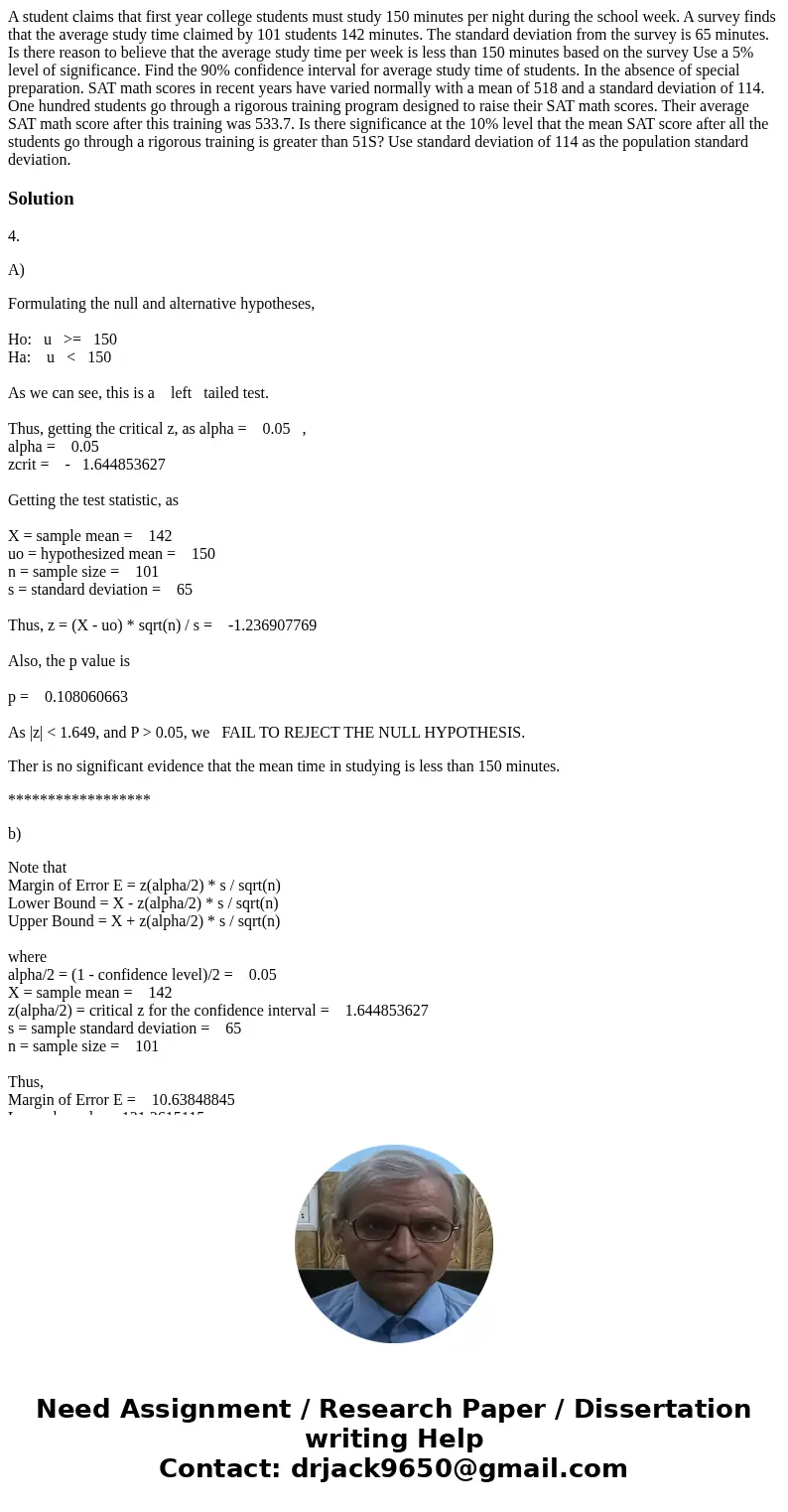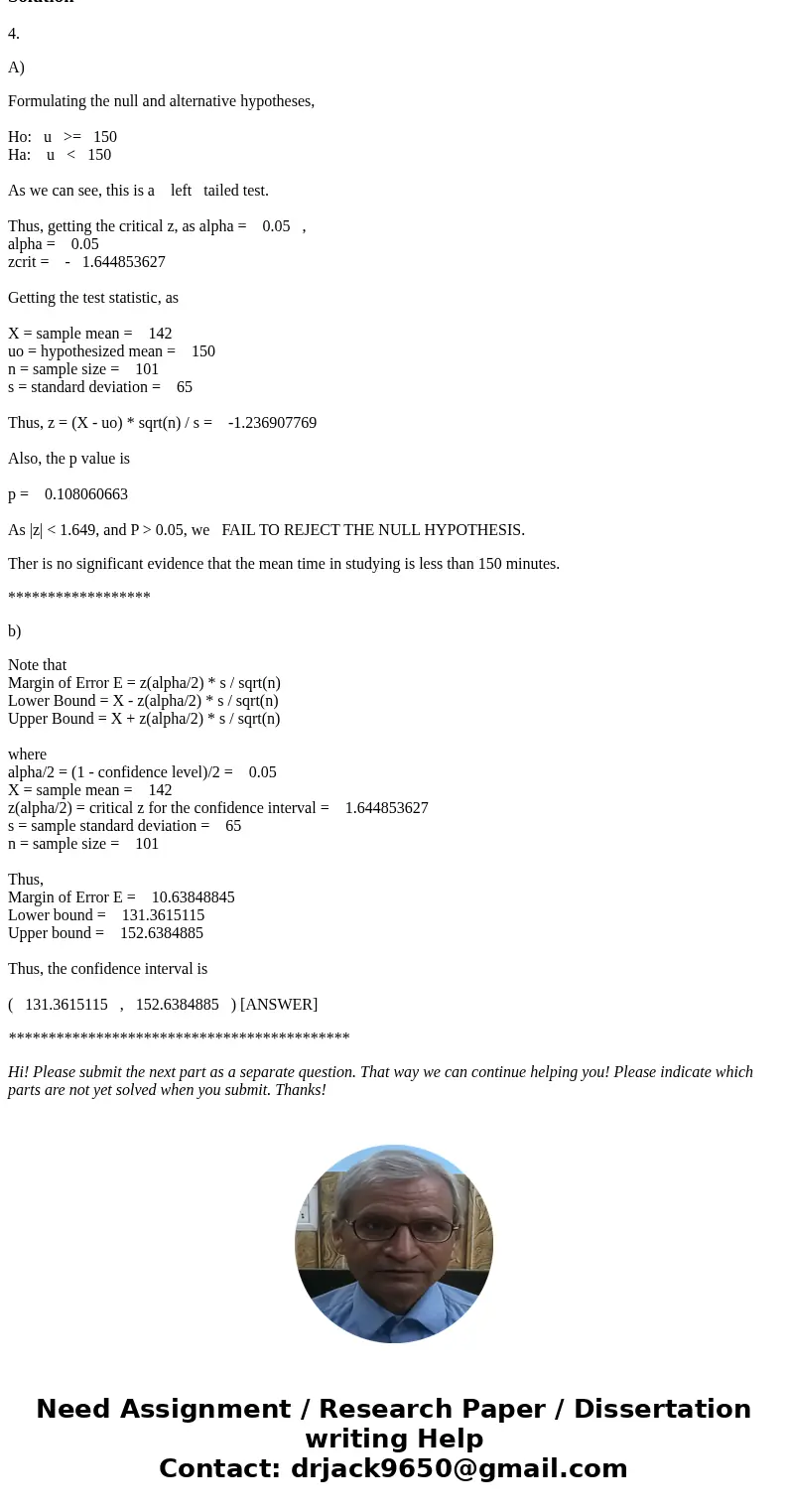A student claims that first year college students must study
Solution
4.
A)
Formulating the null and alternative hypotheses,
Ho: u >= 150
Ha: u < 150
As we can see, this is a left tailed test.
Thus, getting the critical z, as alpha = 0.05 ,
alpha = 0.05
zcrit = - 1.644853627
Getting the test statistic, as
X = sample mean = 142
uo = hypothesized mean = 150
n = sample size = 101
s = standard deviation = 65
Thus, z = (X - uo) * sqrt(n) / s = -1.236907769
Also, the p value is
p = 0.108060663
As |z| < 1.649, and P > 0.05, we FAIL TO REJECT THE NULL HYPOTHESIS.
Ther is no significant evidence that the mean time in studying is less than 150 minutes.
******************
b)
Note that
Margin of Error E = z(alpha/2) * s / sqrt(n)
Lower Bound = X - z(alpha/2) * s / sqrt(n)
Upper Bound = X + z(alpha/2) * s / sqrt(n)
where
alpha/2 = (1 - confidence level)/2 = 0.05
X = sample mean = 142
z(alpha/2) = critical z for the confidence interval = 1.644853627
s = sample standard deviation = 65
n = sample size = 101
Thus,
Margin of Error E = 10.63848845
Lower bound = 131.3615115
Upper bound = 152.6384885
Thus, the confidence interval is
( 131.3615115 , 152.6384885 ) [ANSWER]
*******************************************
Hi! Please submit the next part as a separate question. That way we can continue helping you! Please indicate which parts are not yet solved when you submit. Thanks!


 Homework Sourse
Homework Sourse